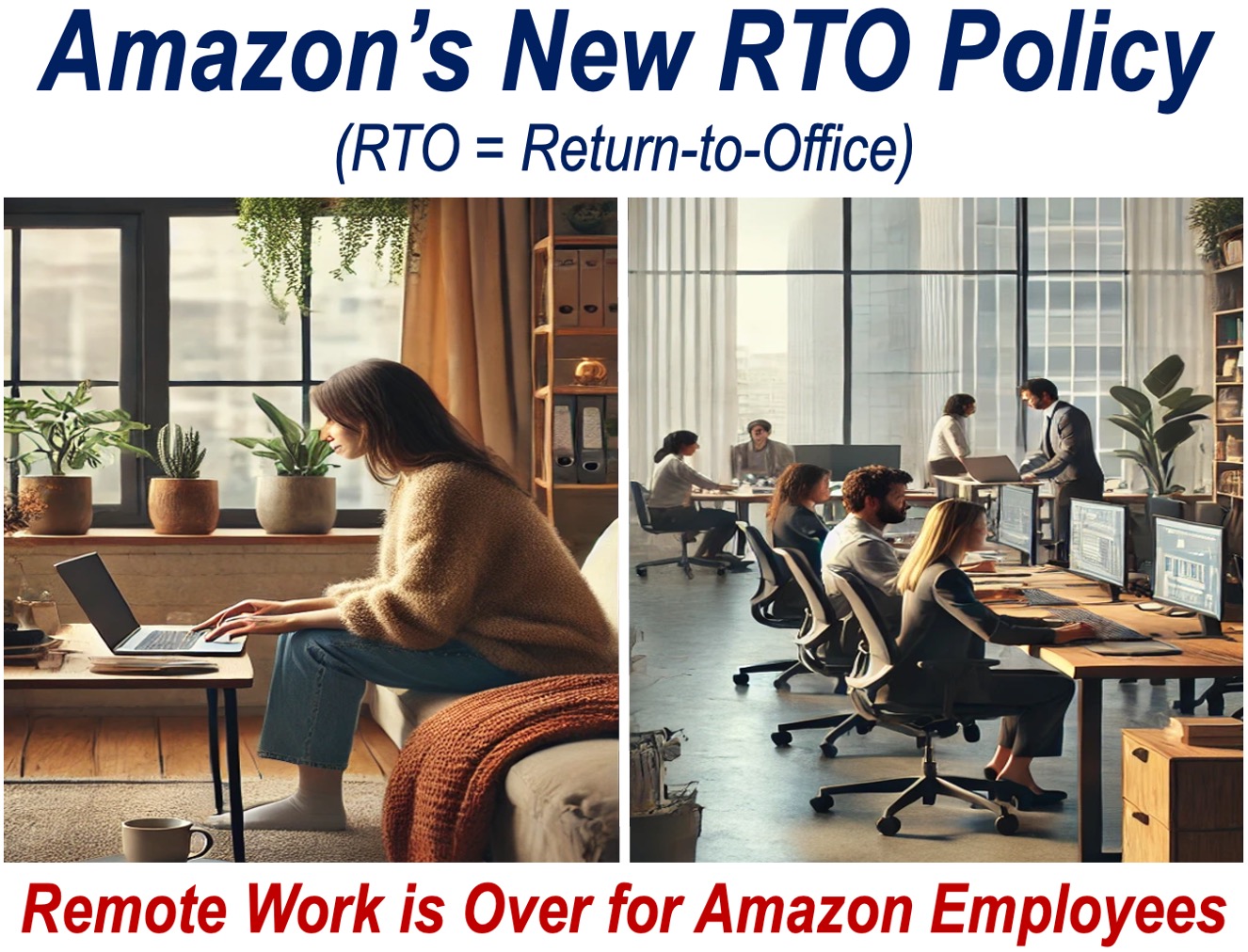Amazon’s recent decision to implement a five-day return-to-office (RTO) policy in 2025 has sparked concern among its global workforce, reigniting the debate over the future of work.
The tech giant, which had previously embraced a hybrid model requiring employees to be in the office three days a week, has now announced a full return to pre-pandemic working conditions.
For many employees, this move has led to anxiety and uncertainty, with some reconsidering their future at the company.
Stricter Office Mandates for 2025
Amazon’s CEO, Andy Jassy, addressed the change in a memo to employees, emphasizing the benefits of in-person collaboration.
He explained that working together in an office environment fosters stronger teamwork, innovation, and communication. “We believe the advantages of being together in the office are significant,” Jassy said in a statement shared on Amazon’s website.
He pointed out that Amazon has observed improvements in collaboration and creativity since partially returning to the office in 2023 and believes a full-time return will only strengthen these gains.
Jassy highlighted Amazon’s unique work culture, which he described as a major factor in the company’s success. He expressed concerns that remote work could dilute that culture, particularly given the scale and speed at which Amazon has grown over the last few years.
“Strengthening our culture remains a top priority for the s-team and me. And, I think about it all the time,” Jassy remarked in his memo.
He also made it clear that employees who fail to comply with the new mandate could face negative consequences, including missing out on promotions or, in extreme cases, losing their jobs.

Image created by Market Business News.
Mixed Reactions from Employees
The response from Amazon employees has been mixed, with many expressing frustration and concern.
For some, the return-to-office mandate feels like a betrayal, especially for those who were hired under the understanding that they could work remotely.
Daniel, a former Amazon Web Services engineer who left the company in 2023, described his experience with the shifting policies. After 10 years of working remotely in the tech industry, Daniel felt anxious about the impending return to the office.
“I didn’t even realize how much anxiety I had about it until I left,” he told Fox Business. He eventually chose to leave Amazon for another fully remote position. Daniel believes that many other employees will follow in his footsteps as they reassess their careers in light of the new requirements.
Similarly, in Germany, Amazon employees have expressed growing concerns about the company’s shift toward full-time office work.
One anonymous Amazon engineer in Germany shared their thoughts in an interview with Business Insider via Entrepreneur, explaining that their team felt “shocked and worried” by the news.
“This is a betrayal to many people, especially those who were hired as remote workers,” they said. The engineer speculated that the new policy could be a tool for silent layoffs, as it may push employees to leave voluntarily rather than face potential firing for non-compliance.
Many Amazon employees fear that the RTO mandate will force them to make difficult choices. “A few colleagues have contacted me and told me they are considering leaving the company, even going to lower-paying jobs,” the engineer revealed.
A Global Trend Toward In-Office Work?
Amazon’s decision to enforce a full return to the office reflects a broader trend among major companies, particularly in the tech and financial sectors.
Tech leaders like Elon Musk have similarly advocated for full-time in-office work at Tesla and X (formerly Twitter), with Musk stating that failing to show up at the office would be interpreted as resignation.
According to CBS News, Musk has been a vocal critic of remote work, arguing that employees are more productive in an office environment.
Other major corporations, such as JPMorgan, have also reinforced in-person work policies, with CEO Jamie Dimon arguing that remote work “does not work for younger people…or those who want to hustle.”
Despite these moves by tech and financial giants, not all companies are embracing a strict return-to-office mandate.
Many businesses, particularly in Europe, have opted for hybrid models that allow for a more flexible approach.
In the UK, the government has even advocated for strengthening employees’ rights to work remotely, suggesting that flexible work arrangements lead to higher productivity and better work-life balance.
According to a report by the BBC, many businesses have found that hybrid work increases employee engagement and reduces turnover.
The Future of Amazon’s Workforce
As Amazon prepares to enforce its RTO policy in 2025, many employees are questioning whether they want to remain with the company.
The anonymous engineer in Germany noted that some colleagues have already made plans to leave when the job market improves. “People are already frustrated and under a lot of stress, and the new RTO policy is only increasing the tension,” they said.
At the same time, Amazon’s leadership maintains that returning to the office is essential for preserving the company’s culture and driving innovation. While the future of remote work remains uncertain, one thing is clear: Amazon’s RTO policy will continue to spark debate as employees weigh the costs and benefits of returning to the office.
